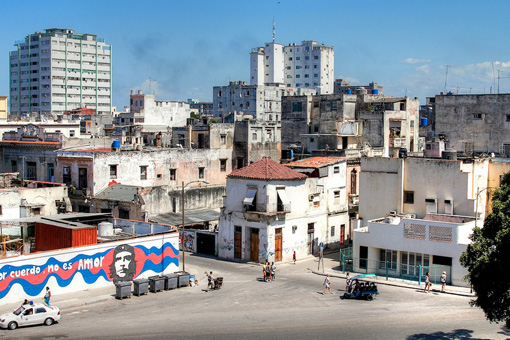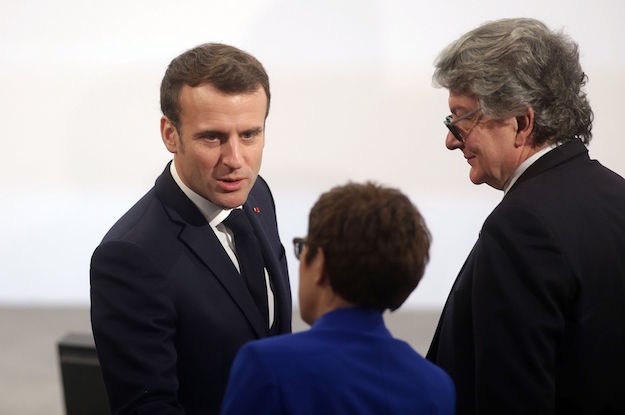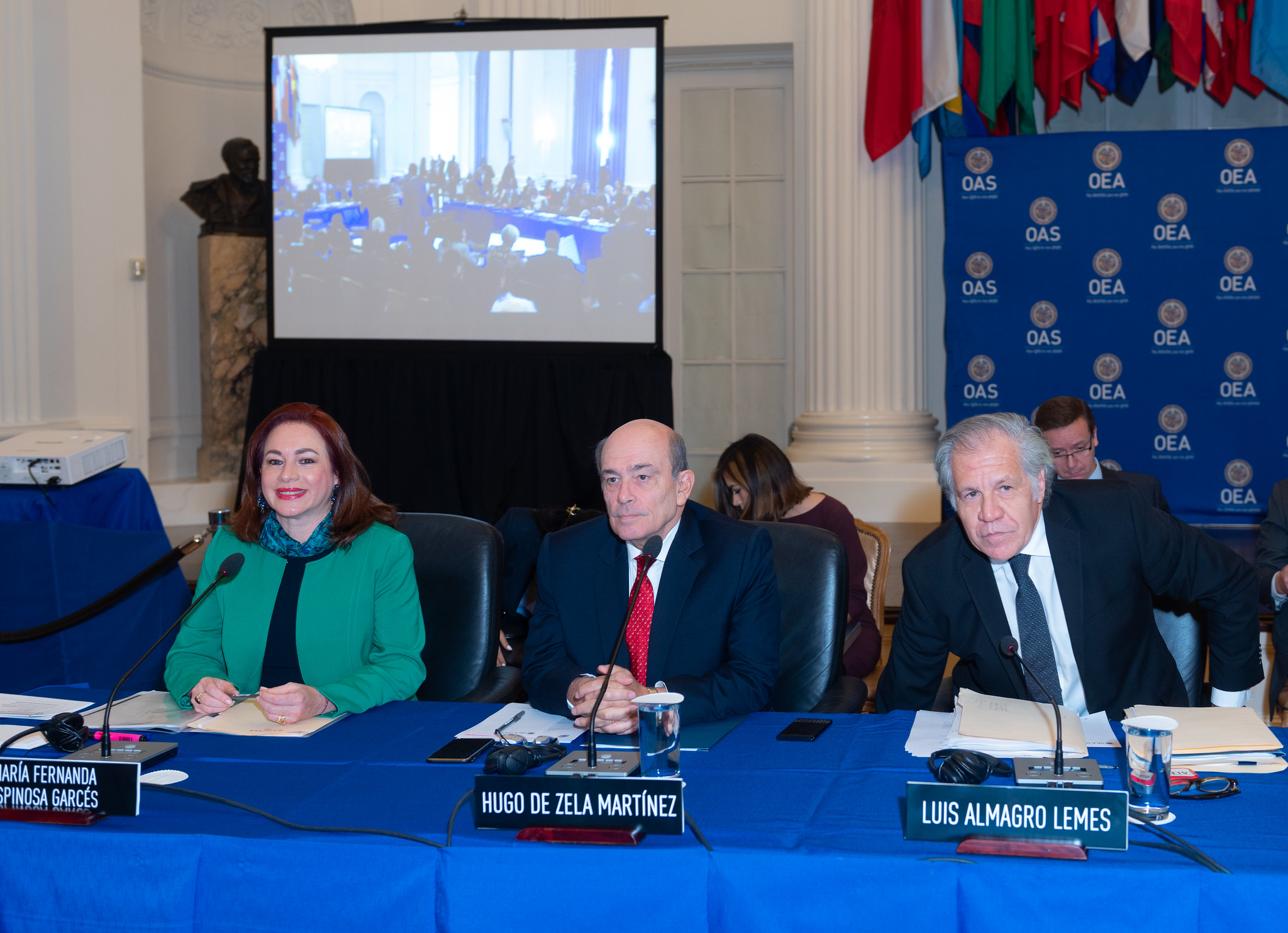On February 10, the European Union’s Foreign Affairs Council (FAC) approved a mandate to start negotiating an overall agreement with Cuba. This decision had been under preparation since 2008, when the EU renewed its political dialogue with Havana. Between 2003 and 2008, relations had been at a low point following a series of strong measures against the island’s dissident community.
It took years of internal diplomacy within the EU and its institutions to gain the February 10 decision. The intermediate step was a previous decision by the FAC on November 19, 2012 to start work on the terms of the negotiation. It’s those Negotiating Directives which have now been approved, together with a mandate for the EU’s common diplomatic arm to open the negotiations.
In the meantime, the EU’s relations with Cuba have been, and still are, ruled by a Common Position adopted in 1996. The Common Position is a unilateral document with strong emphasis on political demands from the European side, including pluralist democracy, respect for human rights and improvements in Cuban citizens’ standard of living.The Common Position is a product of its times in more than one way. In the mid-1990s, Cuba was passing through its worst economic and social crisis ever. Some predicted imminent collapse.
Hoping to bolster the well-being of Cuban citizens, the EU set out its expectations. In Europe, the post-communist wave of optimism was strong, and the former satellite states of the USSR were all candidates for accelerated EU membership.
But the Common Position also came into being at the very moment when individual EU Member States, filling in the gaps left by the disintegration of the Communist bloc, became very active in Cuba as investors, trading partners, suppliers of new credit, and as the source of hundreds of thousands of tourists.
These new links created the need for specific agreements in the economic and legal fields, whereas the Common Position reflected political principles.
Ever since, the EU has had this two-track relationship with Cuba: staying on a very principled level as a whole, while individual members evolved toward pragmatic state-to-state relations.
Almost 18 years have passed in this way. Roughly half of the present 28 EU Member States now have individual agreements with Cuba. In part thanks to these agreements, the EU has become the second most important economic partner of the island. But in some instances, those agreements—especially the more recent ones—have also included political elements.
The principled political demands enshrined in the Common Position have not lost their relevance, but at the same time, the EU is seeking to harmonize its values with the interests of all Member States, and to engage Cuba on the same terms the EU applies to all its other partners.
This is also a forward-thinking strategy. Cuba has increasingly involved itself within the Caribbean and the wider Latin American region. In the Caribbean, Cuba’s weight is considerable in terms of geography, land mass, proximity to shipping lanes and markets, quality of the workforce, etc. It punches above its weight in multilateral institutions, and in many places and with many people, Cuba still enjoys a capital of sympathy well beyond the true political appeal and resonance the island may have had during the Cold War.
Also, the resilience of the Cuban government, the expectations of Cuban society and the need to support ongoing economic reform make it more necessary now to talk to Cuba, rather than about Cuba.
EU with unity—pluralities
Any decision of the kind taken on February 10 reflects the complexity of the EU: not only the checks and balances between and within its institutions, but also the wide spectrum of political opinions to be taken into account. While this makes the life of European diplomats sometimes very challenging, it also makes for rich debate and nuanced decisions.
Cuba is an issue as such in various capitals of EU member states: in Madrid, for obvious historical reasons; in former communist EU members, where demands and expectations are often based on deeply felt national experiences; in the Mediterranean and Latin countries, where there is always a hint of resisting real or perceived Anglo-Saxon predominance in the Americas, with Cuba often seen as the very paradigm. Human rights issues, a priority for the EU as a whole, receive even more persistent attention from our politically strong and vocal NGO-movements, and from national and Euro-parliamentarians.
These complexities are present in the February 10 decision to seek to engage Cuba.
First of all, the Common Position and its strong political accents will remain on the table until a negotiated document can replace it. Second, the EU insists that the process is reversible—for example, in the case of political or social developments in Cuba deemed to go against the spirit of a negotiation—and third, there is a clear instruction that the negotiators on the EU side will have to have put human rights issues on the table.
Other crucial elements may be the specific issues of arms control and regional security, sustainability and climate change—all elements of wide relevance, brought to the table by the EU in all similar negotiations.
We are in the very early stages of the process. However, the “red lines” on the European side are easy to define. We will sit down with our Cuban counterparts to find out what they are willing to bring to the table. We will seek openings with and in the Cuban society to debate our values.
This is a diplomatic process, and the Cuban government is and will be our negotiating partner; but given the values we stand for in the field of human rights and public liberties, we will seek to hear from civil society in Cuba as well.
Encouraging evolution from within
Our diplomacy will be based on encouraging evolution from within, taking into account the long-term stability of the country, the legitimate expectations of its people and how those interests are best served. A negotiated agreement could contain considerable advantages for Cuba from the political, economic and cooperation angles. But of course, it takes two to rumba, and we have to hear from our Cuban partners what their negotiating margins are, including on human rights issues.
But there is common ground. Cuba’s track record on women’s and children’s rights stands out; the recent work to recognize and respect sexual diversity is a prime example of the society reforming deep-seated social and cultural attitudes from within; there is increasingly open debate about economic reform and about the institutional changes it requires; the freedom of creative writing is starting to flourish; and various religious denominations have found acceptance as vital forces in the society.
Like any other country, Cuba has internal debates, which we respect. Those debates may not be conducted along the lines we are used to in multi-party democracies, and we often wish we were better informed about all their aspects. But they are nevertheless real and very active at this point in time. We can only hope that, in due course, they facilitate the negotiating process with the EU.
We are well aware of our limits in this coming exercise. The economic ties between the European Union and Cuba are important but very far from exclusive, and we are far away from the region.
But also, various EU Member States have territorial and long -term economic interests in Latin America and the Caribbean. The region is important in terms of migration and control of illicit trades. The EU, as the strongest example of regional integration worldwide, favors and promotes regional cooperation. Cuba had a successful presidency of CELAC in 2013-2014, and as such, was in the driver’s seat for the newest initiative for true regional integration in Latin America as a whole. This may also help to create negotiating momentum with the EU.
Cuban history is also a unique crossroads, where a blend of American, African, European and even Asian cultures has been forged over the centuries. This peculiar blend is still being enriched and expanded every day—as the vital Cuban music, visual arts and literary scenes clearly demonstrate. Cuba is a country with a strong sense of history, identity and destiny.
The EU, as a global player, feels that it should be part of the ongoing chapters of this history. We have a worldwide network of partnerships, of which we feel Cuba should be a full member. We do not pretend to dictate the future of any country, but we will promote our values everywhere with the conviction that they are universal and respond to basic human aspirations.
The internal EU preparations for the negotiating process are ongoing, as are preliminary contacts with the prospective negotiators on the Cuban side. It would be foolhardy at this point in time to set forth a date to reach an agreement—but as is so often the case with diplomacy, the chance to have both sides on real speaking—and listening—terms is the first gain.
*Herman Portocarero is a Belgian career diplomat, presently representing the EU in Cuba as Ambassador, Head of Delegation of the European External Action Service (EEAS). This article reflects his personal views and experience.








